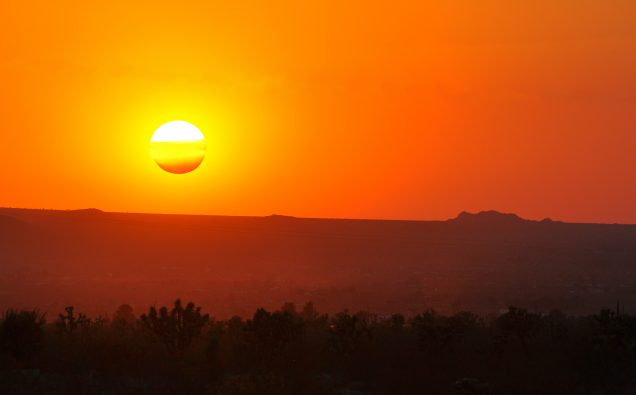
The much-feared 1.5C jump in the temperatures may not be far away after all. It might come as a reality check for climate change deniers in the next few years as mercury shoots up with weather patterns more regularly and more intensely.
Amid rising concerns over warming weather trends, the world countries set the 1.5°C mark as the target that should preferably not be breached past. And it is not just that the sun will be beating down. A spate of factors like gas emissions and lack of action on part of governments will come together to cause this rise in temperature.
The countries set the target as they signed up to the 2015 Paris Agreement to limit temperature rises in order to prevent permanent changes that threaten the wellbeing of all life on earth. The agreement calls for limiting rises to 2°C or below.
Now, experts say that a desirable level may be reached sooner than later.
There is a 90% likelihood of at least one year between 2021-2025 becoming the warmest on record, which would dislodge 2016 from the top ranking, according to the Global Annual to Decadal Climate Update, produced by the United Kingdom’s Met Office.
There is a 40% chance of the world temporarily hitting the 1.5C temperature rise threshold in one of the next five years, the UN weather agency WMO warned in a new report issued this week.
According to experts, up to the end of 2025, high-latitude regions and the Sahel are likely to be wetter, the report suggests, and there is an increased chance of more tropical cyclones in the Atlantic compared to the average, taken from the start of the 1980s.
In 2020 – one of the three warmest years on record – the global average temperature was 1.2 °C above the pre-industrial baseline, according to the WMO’s report on the State of the Global Climate 2020, released in April. It highlighted the acceleration in climate change indicators like rising sea levels, melting sea ice, and extreme weather, as well as worsening impacts on socio-economic development.
The latest update confirms that trend. In the coming five years, the annual mean global temperature is likely to be at least 1°C warmer – within the range 0.9°C – 1.8°C – than preindustrial levels.
The annual WMO update uses the expertise of internationally acclaimed climate scientists and the best prediction systems from leading climate centers around the world to produce actionable information.
“These are more than just statistics”, WMO Secretary-General Petteri Taalas said. “Increasing temperatures mean more melting ice, higher sea levels, more heatwaves, and other extreme weather, and greater impacts on food security, health, the environment, and sustainable development,” he said.
“This study shows – with a high level of scientific skill – that we are getting measurably and inexorably closer to the lower target of the Paris Agreement on Climate Change.”
Professor Taalas called it yet another wakeup call that the world needs to fast-track commitments to slash greenhouse gas emissions and achieve carbon neutrality.
“Technological advances now make it possible to track greenhouse gas emissions back to their sources as a means of precisely targeting reduction efforts”, he noted.
According to Taalas , only half of 193 WMO Members have state-of-the-art early warning services. Countries should continue to develop the services that will be needed to support adaptation in climate-sensitive sectors – such as health, water, agriculture, and renewable energy – and promote early warning systems that reduce the adverse impacts of extreme events.
“Besides limitations in early warning services we are having severe gaps in weather observations especially in Africa and island states. This has a major negative impact on the accuracy if the early warnings in those areas and globally. We need to invest in the basic networks as well.” he said.














